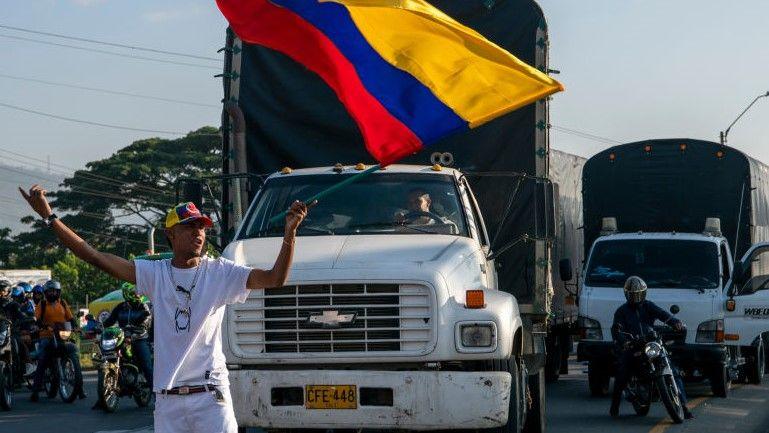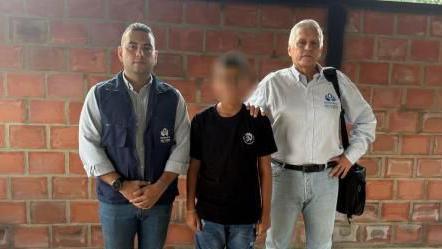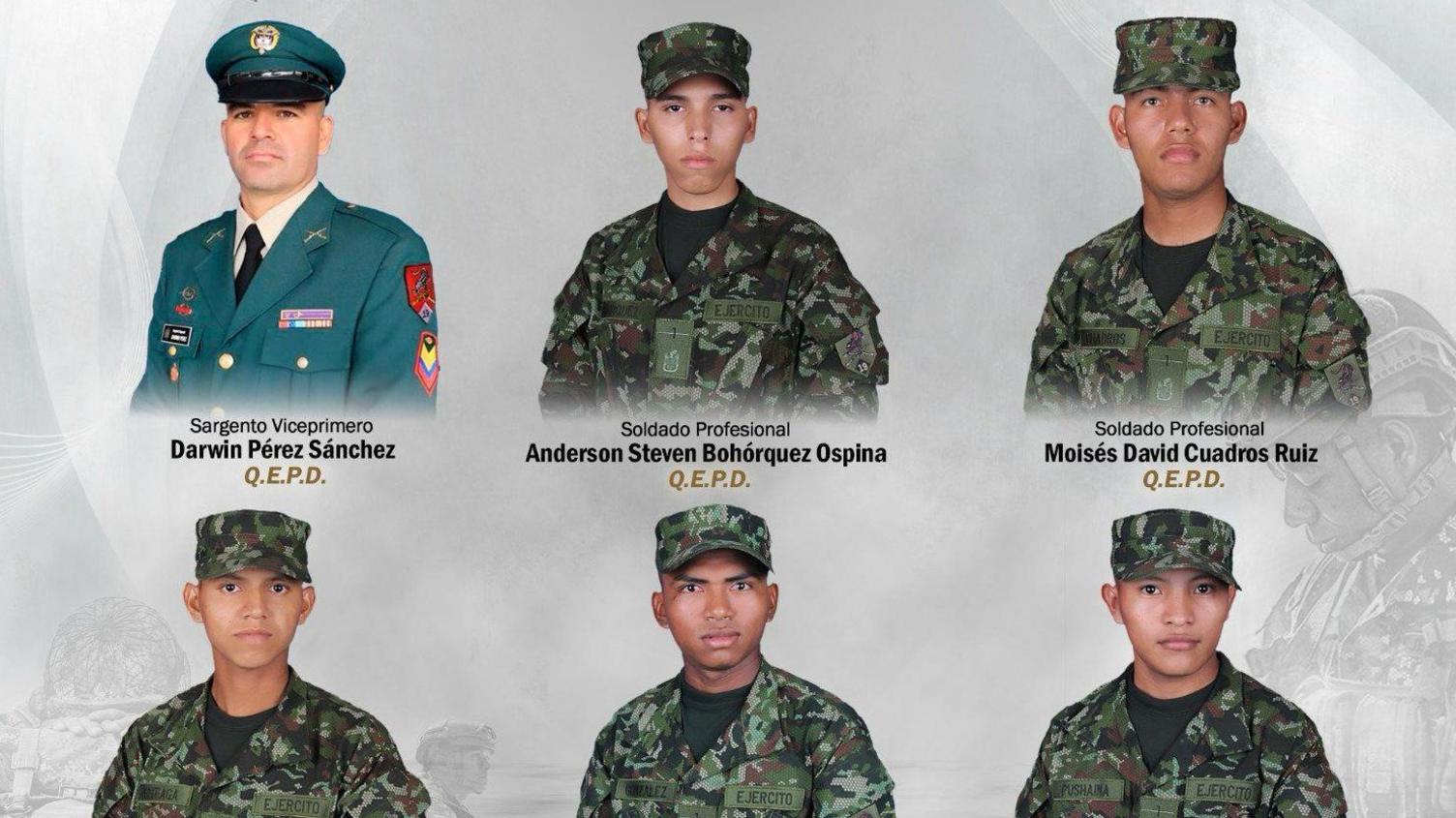Missing Colombian social leaders 'killed by rebels', prosecutor says
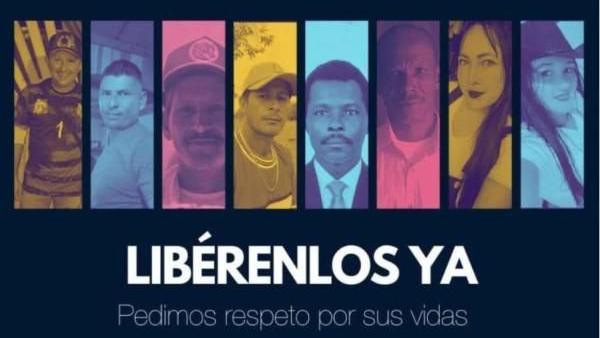
The eight had been reported missing in April
- Published
The bodies of eight Colombian religious and social leaders who had been reported missing in April have been found in a shallow grave in Guaviare province, in south-central Colombia.
The prosecutor's office blamed members of a rebel group called Frente Armando Ríos for their killing.
Officials said the eight - two women and six men - had been summoned by the rebels to be interrogated about the alleged formation of a rival armed group in the area.
There has been no response from Frente Armando Ríos to the accusations.
Colombia is the deadliest country in the world for rights defenders and social leaders, according to a report by international rights organisation Front Line Defenders.
The bodies were found in a rural area known as Calamar, where members of the Frente Armando Ríos are active.
The group is an off-shoot of the Revolutionary Armed Forces of Colombia (Farc).
The Farc signed a peace deal with the Colombian government in 2016 and many of its members laid down their arms, but parts of the group refused to disarm and set up dissident rebel groups such as the Frente Armando Ríos.
These offshoots engage in the production and trafficking of cocaine as well as extortion and illegal mining.
They also engage in armed confrontations with the security forces and with members of the National Liberation Army (ELN) - a rival guerrilla group.
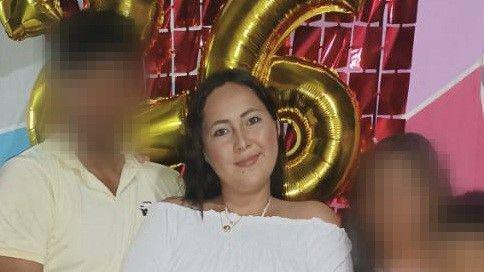
Maryuri Hernández left her five-year-old daughter with her husband when she received the summon. She never returned
According to the statement released by the prosecutor's office, leaders of the Frente Armando Ríos feared that the ELN was setting up a local cell in the area.
They reportedly summoned two of the victims for an "interrogation" on 4 April, and the remaining six people three days later.
Christian Solidarity Worldwide (CSW), a human rights organisation specialising in freedom of religion, said all but one were active leaders and members from two Protestant denominations: the Evangelical Alliance of Colombia Denomination (DEAC) and the Foursquare Gospel Church (ICCG). The eighth was the uncle of two of the other victims.
Among them is a married couple - Isaíd Gómez and Maribel Silva - who often preached in their Protestant church.
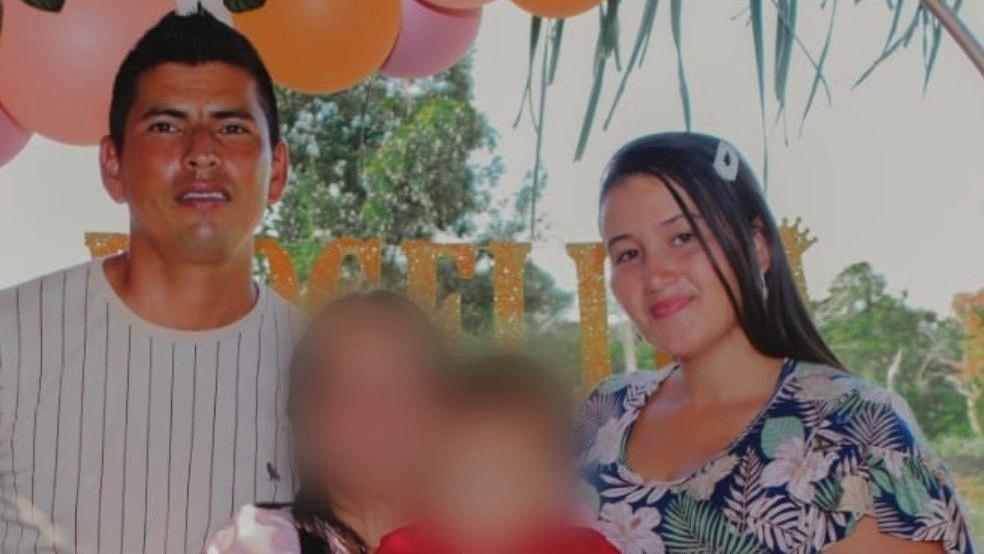
The murder of Isaíd Gómez and Maribel Silva leaves two children orphaned
Also among those whose bodies have been found is Maryuri Hernández, who helped the evangelical pastor in the area. She is survived by her five-year-old daughter.
According to CSW, all eight had settled in the area after fleeing violence and violations of freedom of religion in Arauca, a province bordering Venezuela where several armed groups are active.
Religious leaders and social leaders are often targeted by armed groups in Colombia which do not tolerate any other authority than their own.
Relatives of the victims said the eight had received a message by the Frente Armando Ríos, which demanded that they present themselves for questioning.
According to the investigation by the prosecutor's office, days later they were taken to an abandoned property, where they were killed.
Officials suspect the order to kill them was given by the inner circle of Iván Mordisco, one of the most powerful commanders of the dissident rebel factions.
The murder of the eight has been condemned by Colombian President Gustavo Petro, who called it "heinous" and denounced it as "a grave attack on the right to life, religious freedom and spiritual and community work".
- Published19 May
